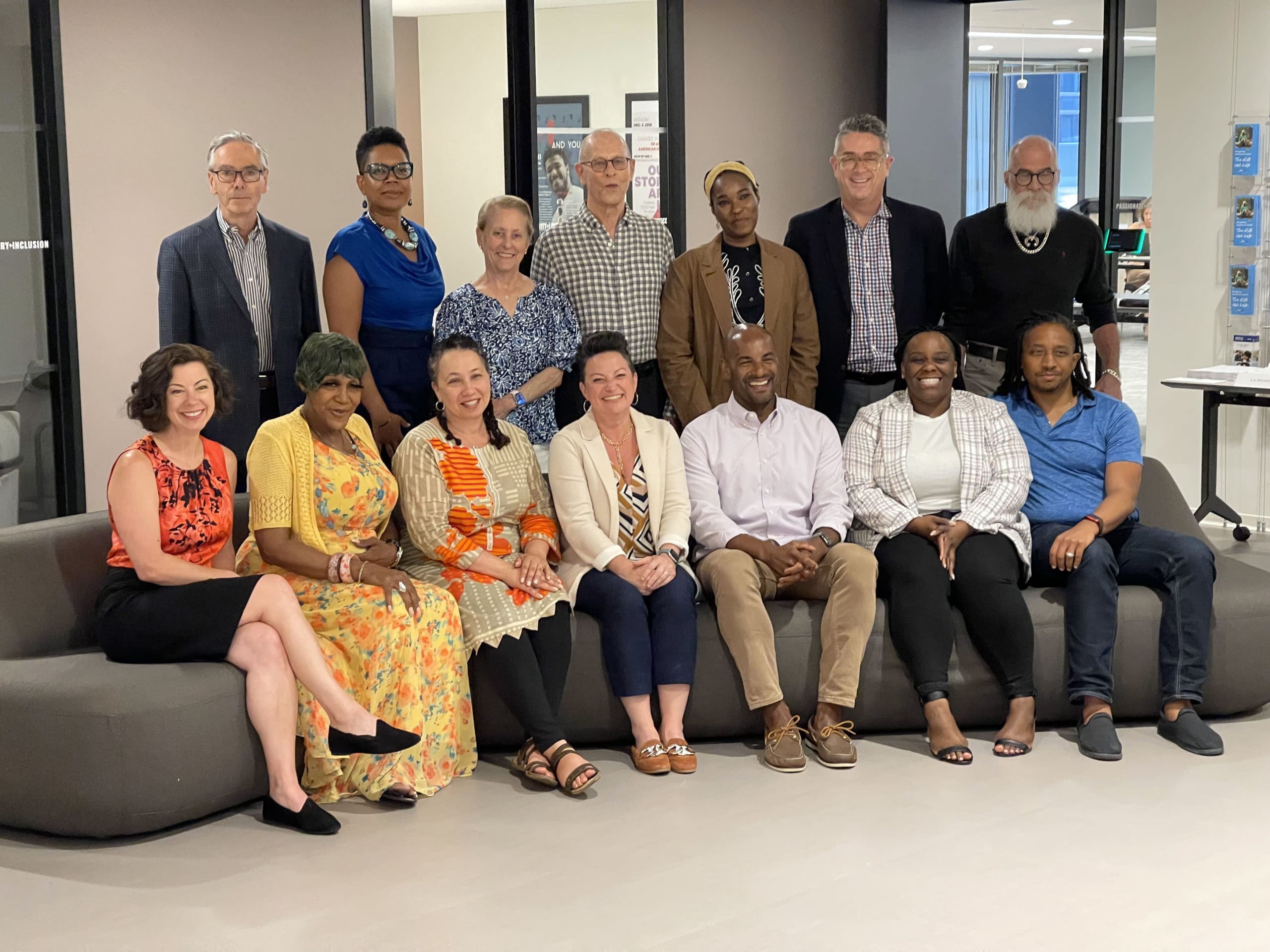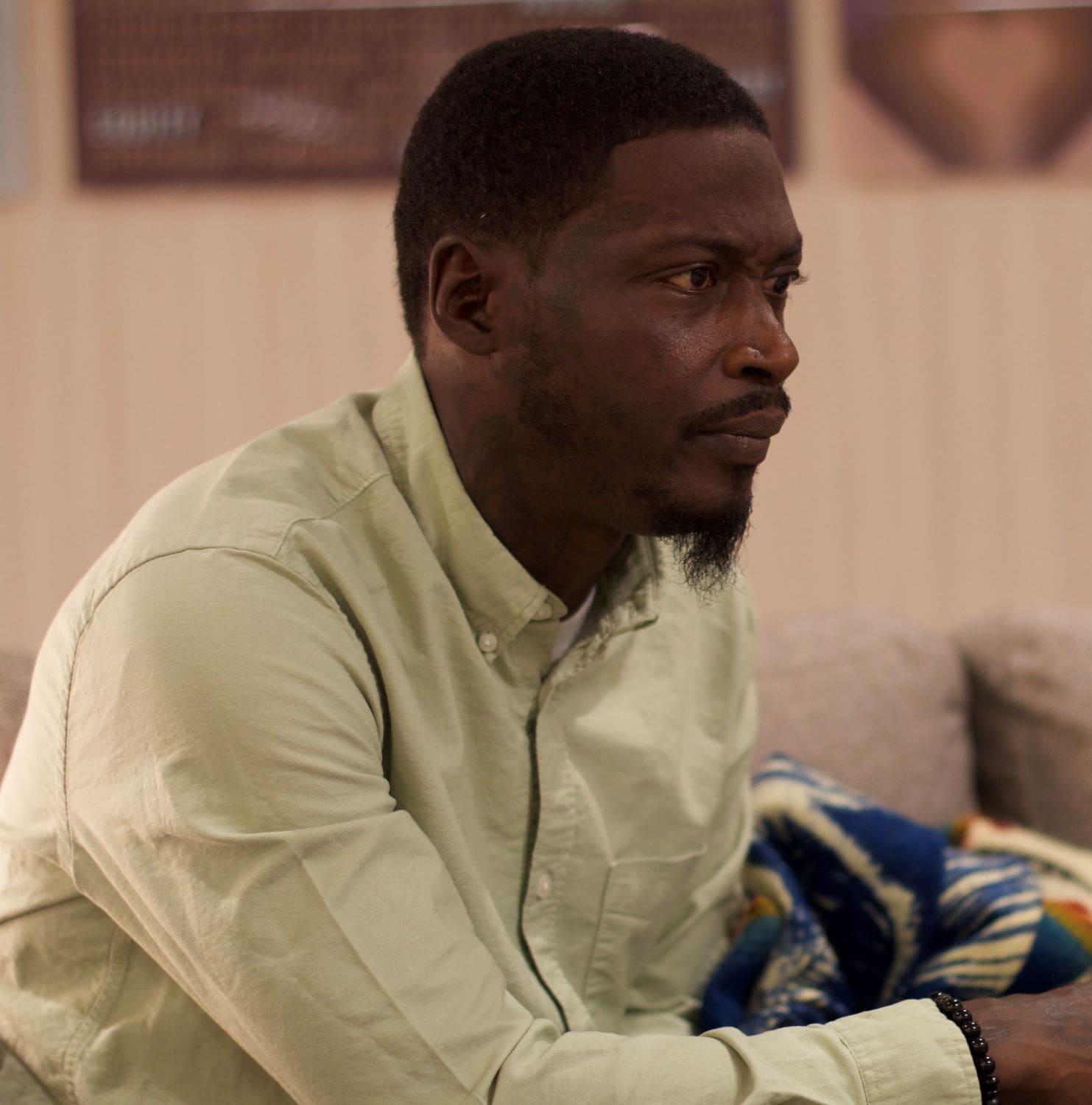The Board of Directors for AIDS Foundation Chicago is the governing body responsible for championing and advising the organization's work. As we begin a new year of Board activities, some long-serving members have stepped down from their duties. We are thankful to Anthony Bruck, Terri Friel, and Joseph P. Stokes for their service and leadership. At the same time, new members from a variety of backgrounds have joined to continue the Board’s momentum. We warmly welcome Kara Eastman, Travis Gayles, Sergio Mojica, Tim Mullet, and Charlie Peterson, and look forward to learning and growing from their perspective and experience.
AFC priorities racial equity and representation of populations most impacted by HIV and homelessness on its board of directors. AFC also transparently shares demographic information about our board. In 2024, two-thirds of AFC’s board identifies as a person of color (40% Black, 20% Latinx, 7% Asian) 33% identify as white. 40% are female-identified and 60% male, with one transgender person. 70% of board members are LGBTQ and 30% straight. Most Board members are ages 45-54, with representation across the age spectrum. 17% are living with HIV and 10% have experienced homelessness. View our Board demographics in the annual report here.
Read on for more detail about the changes on AFC’s Board for 2024.
Departures
We interviewed our departing leaders about their time with AFC and their visions for the future.
Anthony Bruck
Anthony Bruck joined the AFC board in 1992. He has worked in banking, computer graphics, and most recently, in the futures industry. Since 1996, he has been employed as a computer programmer, designing and coding proprietary programs for futures trading.
Anthony remembers, “In the late 1980s, I had friends who were living, precariously, with AIDS, and I also knew an art dealer, Marianne Deson, who was on the AFC board.” Anthony followed connections in the art world to deepen his involvement with AFC. The first AFC event he attended was a benefit art auction in 1989. “I was bidding on a sculpture by Richard Hunt, and didn’t get it,” he recalls. Undeterred, by 1991 he was a candidate for the board after discussing candidacy with a staff member at an AFC gala. He joined the Policy and Advocacy Committee, eventually becoming co-chair alongside former board members Dr. Abbas Hyderi. “In my early years on the board, AFC operated as an umbrella organization, supporting local agencies with grants and other assistance. Site visits to these organizations, such as Bonaventure House, were instructive. AFC is now a much larger organization, with greatly expanded scope.”
When asked about his plans for the future, Anthony says, “I’m looking forward to active participation on the Honorary Board.” AFC is thankful for his over thirty years of excellent stewardship and are grateful for his continued dedication to AFC.
Terri Friel
Terri Friel joined the AFC Board in 2012 after running with T2, the Team To End AIDS endurance running team. Her brother had died from AIDS-related illness in 1986, and their parents had discouraged her from sharing the cause of her brother’s death, due to stigma. “I was interested in finding a way to honor him positively, and fully releasing this secret to the world,” Terri said. She saw a T2 advertisement on the El that said, “You train, you triumph!” Inspired by the ad, she connected with a coach at a T2 orientation meeting. She opened up to her coach about personal experiences that had led her to the meeting, including her brother’s passing, a difficult divorce, and bankruptcy.
Terri started training for a triathlon and was struck by the encouragement of the other T2 runners. During a particularly grueling training session, Terri recalls T2 member Chris Navin hanging back to keep pace with her and saying, "I'm so impressed with your perseverance. You are making so much progress every day. You'll for sure be able to finish the race with all the work you're doing."
“That made a huge difference in my life and my attitude,” Terri says. “I did finish the race. It took 4:52 hours to do the Olympic distance. I can do it now in 3:30. I've come a long way and I credit AFC with changing my life for the better and helping me to honor my brother in the process.” That first year, Terri raised over $5,000 for AFC, and was able to celebrate her brother’s life rather than mourn his death.
A seasoned engineer, Terri’s problem-solving and systems analysis skills have greatly benefited AFC. One of her proudest achievements has been to help the organization diversify its funding sources to ensure longevity and stability. She served as AFC board chair during the pandemic, providing critical support to steer the organization through that challenging time. Terri hopes that in the future, AFC will adapt its work so that it can continue providing funds, advocacy, partnership support, housing, consulting, or other services even after the HIV epidemic ends. She hopes AFC will develop an endowment that could sustain its work for years to come.
“I have very much enjoyed my time at AFC on the board,” Terri says. “I was always impressed with the professionalism and talent of the organization. This made the job of the board much easier as we didn't have to be concerned with crises, we could instead plan for the future...It was one of the most positive jobs I have had in my career.” AFC is grateful to Terri for channeling her personal experiences into passion for our mission, for her commitment to planning and process, and for her impactful leadership.
Joseph P. Stokes
Joseph Stokes first connected with AFC in 1987, when it was in its second year of existence as a nascent organization primarily working to review grant proposals and disburse funds to community organizations. A professor of psychology at UIC, he was asked to join the review committee. He joined the AFC Board in 1990.
“During those years before effective treatments were available, having HIV was tantamount to a death sentence, and most of my gay friends died between the mid-1980s and the development of protease inhibitor meds in the mid-1990s. Like many on the AFC Board at that time, my personal experience losing so many friends motivated me to do what I could to help prevent new HIV cases and to increase services for those who were impacted.”
Joe explained how, early on, AFC worked across three main areas: fundraising for community organizations, policy and advocacy, and coordination among service providers. “AFC’s mission has been relatively stable,” he said, “but the scale of what we do has increased a lot.”
His proudest accomplishments have been policy changes secured from the state and federal governments, including establishment of the AIDS Drug Assistance Program, which helped people to be able to afford expensive and lifesaving medications, and harm reduction legislation that allowed federal funds to be used for needle exchanges.
When asked about his hopes and plans for the future, Joe pledged to remain steadfast in his work as an HIV advocate. “I plan to continue supporting AFC in any way I can,” he said. “AFC’s mission is as important as it ever has been, and I hope to support any efforts to help and support those vulnerable to or living with HIV.”
Arrivals
A who’s who of who’s new to the AFC Board.
Kara Eastman joined the AFC Board in 2024. She is currently the President of Kara Eastman Partners providing consulting services to nonprofits, political campaigns and foundations. Ms. Eastman served as CEO for Omaha Healthy Kids Alliance in Omaha, Nebraska and for Test Positive Awareness Network, Chicago's oldest HIV-focused nonprofit. In 2014, she was elected to the board of Metropolitan Community College in Omaha, and in 2018 and 2020, she was the Democratic Nominee for the U.S. House of Representatives in the 2nd district of Nebraska. She has served as appointee to Omaha's Fair Housing Advisory Board and the Nonprofit Association of the Midlands. She lives in the Ukrainian Village in Chicago with her husband.
Travis Gayles joined the AFC Board in 2024. He is the Chief Health Officer for Hazel Health, Inc., a company that provides in-school telehealth services, managing clinical provider teams, government affairs, and external research, and providing senior clinical and population health expertise. A clinically trained pediatrician, he has previously specialized in adolescent and young adult and HIV medicine, and before joining Hazel, he served as the health department director in Montgomery County, Maryland and Chief Medical Officer for HIV/AIDS, Hepatitis, STIs, and TB for the DC Department of Health.
Sergio Mojica joined the AFC Board in 2024. With over two decades of experience as an educator in roles ranging from teacher to school principal, he has contributed significantly to advancing equity and empowerment for students across Chicago’s public and private sectors. As the Director of Education at YR Media, he ardently supports Justice, Equity, Diversity, and Inclusion (JEDI) practices, focusing on creating comprehensive programs and fostering community engagement. His leadership ensures that youth from historically underserved communities have access to crucial resources, while promoting a healing-centered, anti-racist educational approach.
Tim Mullet joined the AFC Board in 2024. He is the owner and team leader of Mullet Residential at Dream Town Real Estate and is a founding member of Dream Town’s Diversity Council. Before working in real estate, he had a career in marketing for the beverage industry. He is deeply committed to social impact and community service, having supported organizations such as ACLU, Boys and Girls Club and the Center on Halsted in addition to AFC. A proud resident of Andersonville, Tim has a passion for cooking, home projects, sports, theater and discovering Chicago’s hidden gems.
Charlie Peterson (he/him/él) joined the AFC Board in 2024. He is Director of Business Development at Neelyx Labs, a clinical laboratory and diagnostics company focusing on STI-/HIV prevention through the use of at-home collection kits. In his role, he works with a large network of community-based, healthcare, and educational organizations to better promote healthcare messaging, linkage to care, self-advocacy opportunities, and STI and HIV testing. As a foreign-born, mixed-race, gay Latino, Charlie has a vested interest in helping BIPOC communities reduce stigma related to healthcare and to STI testing, taking action to reduce the effects and sources of social determinants of health, and in promoting health equity and advocacy.




